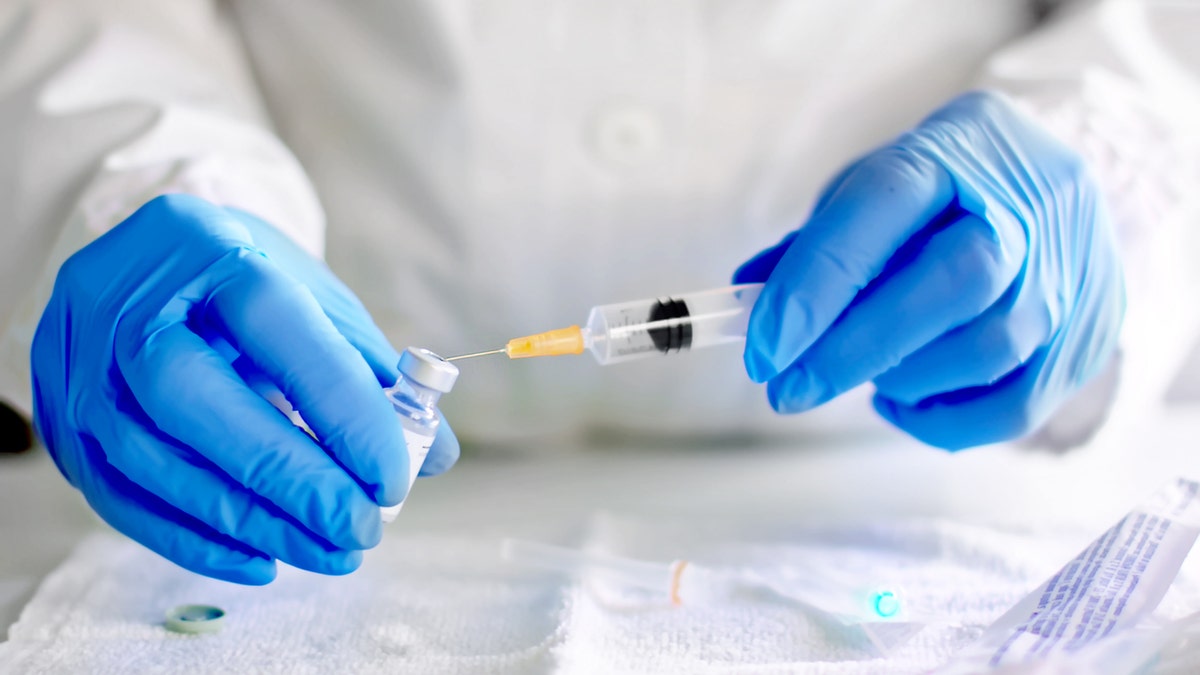2020 presidential candidates trade insults on coronavirus pandemic response
Fox News medical contributor Dr. Nicole Saphier and owners of Steepologie Teas Andrea Raetzer and Joe Raetzer discuss which candidate delivered the message Americans wanted to hear.
Biotech company Moderna announced on Tuesday that its coronavirus vaccine candidate elicited immune responses in older adults from a Phase 1 study in levels comparable to those seen in younger adults. The findings were published Tuesday in the New England Journal of Medicine.
The vaccine candidate, dubbed mRNA-1273, “induced consistently high levels” of neutralizing antibody levels in 40 healthy participants across two age cohorts – 56-70 and 71 and over – per the company announcement.
CLICK HERE FOR FULL CORONAVIRUS COVERAGE

Biotech company Moderna announced on Tuesday that its coronavirus vaccine candidate elicited immune responses in older adults from a Phase 1 study in levels comparable to those seen in younger adults. (iStock)
“These interim Phase 1 data suggests that mRNA-1273, our vaccine candidate for the prevention of COVID-19, can generate neutralizing antibodies in older and elderly adults at levels comparable to those in younger adults,” Dr. Tal Zaks, chief medical officer of Moderna, said in the announcement. “Given the increased morbidity and mortality of COVID-19 in older and elderly adults, these data give us optimism in demonstrating mRNA-1273’s protection in this population, which is being evaluated in the Phase 3 COVE study.”
MODERNA SEES 'POSITIVE' PHASE I DATA FOR POTENTIAL CORONAVIRUS VACCINE
The data stemmed from a second interim analysis which assessed a two-dose vaccination administered 28 days apart in two dose levels, 25 micrograms (µg) and 100 micrograms, reporting findings one month after the second dose.
“This analysis found that both the 25 µg and 100 µg dose levels were generally well-tolerated in both age cohorts,” per the announcement.
The 100 microgram dose elicited higher antibody levels, “supporting the selection of the 100 µg dose for further study in the Phase 3 trial.” Moderna previously announced plans to use the 100 microgram dose in its late-stage trial, which will enroll up to 30,000 volunteers in the U.S. As of Sept. 25, there were 27,232 participants enrolled, 30% of which were from diverse communities.
CORONAVIRUS WAS EVEN MORE CONTAGIOUS AT BEGINNING OF PANDEMIC THAN EXPERTS THOUGHT, STUDY FINDS
Company officials said the majority of adverse events were mild to moderate, like headache, fatigue and chills, among others.
After the second vaccination, one patient in the 56-70 cohort with the 25 microgram dose experienced a fever, and a second patient in the older cohort and higher dose had fatigue, but officials said “clinical laboratory values of Grade 2 or higher revealed no pattern of concern” and that the patients would be followed through 13 months for a longer assessment.
The findings were said to be confirmed through three live virus assays, and “robust neutralizing activity was observed in all participants 14 days after the second vaccination.”
The U.S. government already struck a deal with Moderna for 100 million doses of the vaccine, with an option to buy an additional 400 million doses.

